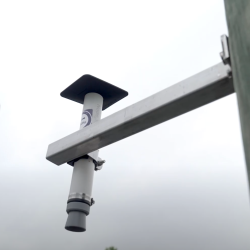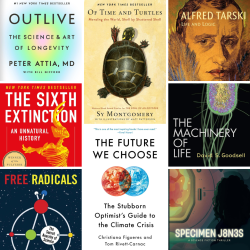UMD Team to Teach Climate Change to High School Students
Climate change is the greatest environmental challenge facing the world today. A complex topic with rapidly developing science and technology and the potential for controversy, climate change can be difficult for adults to wrap their minds around. For children, the concept is even more abstract.
A two-year, $105,000 seed grant from the Maryland Council on the Environment will power a University of Maryland collaborative effort called “ScienceBEAT” to help teach climate change at three high schools in Prince George’s County, Md. The students will learn how their communities, natural resources and ecosystems are affected by a changing climate.
The UMD research team includes:
- Timothy Canty, research assistant professor in the Department of Atmospheric and Oceanic Science
- Ross Salawitch, professor in the Department of Atmospheric and Oceanic Science with co-appointments in the Department of Chemistry and Biochemistry and the Earth System Science Interdisciplinary Center
- Amir Sapkota, associate professor with co-appointments in the Maryland Institute for Applied Environmental Health and the Department of Epidemiology and Biostatistics
- Wayne Slater, associate professor in the College of Education
- Ronald Yaros, associate professor in the Philip Merrill College of Journalism
“Thanks to the support from the University of Maryland Council on the Environment, this interdisciplinary team of researchers is committed to working with local high schools to develop and test innovative materials that inform and engage younger people with critical information about climate changes now underway,” said Yaros, who will lead the effort.
Through the program, high school students will:
- Use interactive modules to explore data, predictions and effects of climate change.
- Access up-to-date climate science that has not been filtered by people with political and/or business agendas and is presented in an easily understandable way.
- Use mobile devices to research and write explanations about complex information for different types of digital audiences.
- Create content for digital audiences based on how much information they want to consume. This model will help students discover there are new ways for one message to simultaneously reach different audiences.
“I teach a large class on weather and climate here at Maryland and one thing that is very clear is that there's a lot of readily available misinformation about climate science and people often don't know whom to trust,” said Canty. “This program aims to clarify to high school students some of the common misconceptions about climate change and the consequences of global warming.”
The program is designed to supplement existing lessons in the curriculum and not replace them. Funds will be used for teacher training and interactive modules for mobile devices.
“Through this program we will learn how high school students respond to different types of active learning and better understand how they want to explore complex global challenges like climate change,” said Salawitch.
Media Relations Contact: Abby Robinson, 301-405-5845, abbyr@umd.edu
University of Maryland
College of Computer, Mathematical, and Natural Sciences
2300 Symons Hall
College Park, MD 20742
www.cmns.umd.edu
@UMDscience
About the College of Computer, Mathematical, and Natural Sciences
The College of Computer, Mathematical, and Natural Sciences at the University of Maryland educates more than 7,000 future scientific leaders in its undergraduate and graduate programs each year. The college's 10 departments and more than a dozen interdisciplinary research centers foster scientific discovery with annual sponsored research funding exceeding $150 million.







